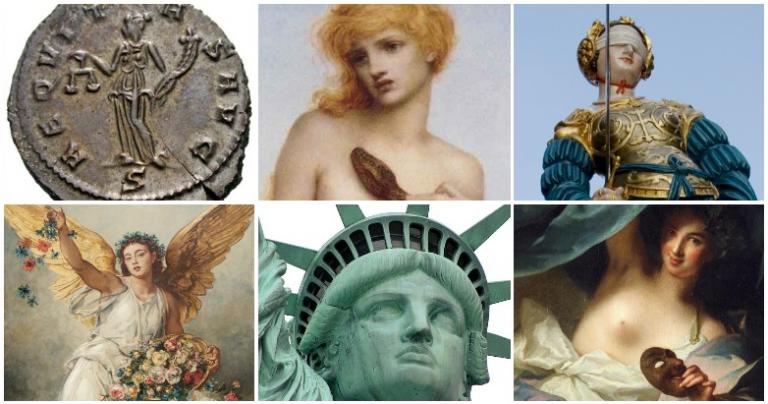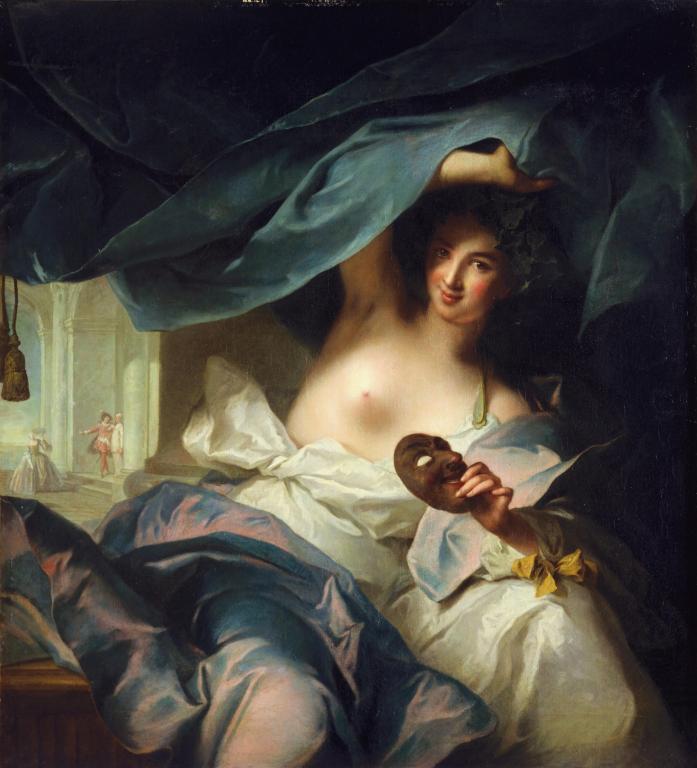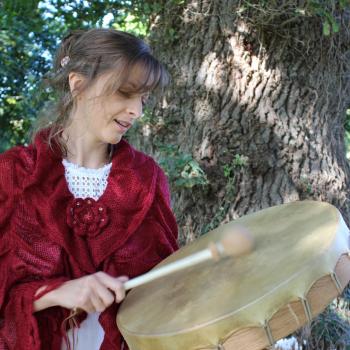In this second part of an exploration of “Secularist Deities,” let’s look at the divinities that personify some of the ideals that secularism represents and aims to achieve in society.
Modern secularism is based on the idea of universal human rights and liberal, democratic values. Although the concepts of “secularism,” “human rights” and “liberal values” as we understand them today did not truly exist in ancient times, other ideas that came close to some of basic principles underlying these concepts did exist. The ancient Greeks and Romans loved to personify everything and anything, no matter how abstract, and so deities representing political and social ideas were born.
Here I’ve listed some of these deities. They’re all from the Greco-Roman pantheons, and they’re all goddesses. That concepts underpinning secularism, liberalism and human rights are overwhelmingly represented by female deities is in itself very interesting.
If you would like to hold rituals, offerings or prayers for human rights and mankind, you may wish to hold some of these goddesses in your mind.
The Goddesses of Liberty

We must start with the most fundamental concept of liberalism of all: personal freedom. Liberty is also at the heart of secularism. Secularism means freedom of religion, and freedom from religion. It means that anyone is free to have a religion, have no religion, to leave a religion and to change religion, and that no-one should be compelled into religious worship.
The Romans had several goddesses representing the concepts of liberty and freedom which all merged together to varying extents. One was Feronia, the goddess of wild places, fertility, health and abundance. She was also the patron of freed slaves and civil rights for those on the bottom rung of society, and so she was especially popular among commoners and freedmen. A stone at her shrine at Terracina, which was apparently a place where slaves would be set free, was inscribed “let deserving slaves sit down so that they may stand up free.” Freed women would reportedly collect money as a gift for Feronia.
Feronia became identified with another goddess of freedom, Libertas, whose Greek equivalent is Eleutheria. While Feronia appears to be a folk goddess, Libertas was endorsed by the Roman state. She was associated with the creation of the Roman republic and shrines to her were built by the Senate. She also appeared on Roman coins. Her symbols included the pileus, a felt cap worn by freed slaves, and the rod called the vindicta, which would be laid on the head of a slave as part of the process of granting freedom.
Another Roman goddess of freedom is Libera, daughter of the agricultural goddess Ceres and associated with wine and female fertility.
There is a male god of freedom too – Liber, the male equivalent and brother of Libera. Also known as Liber Pater (“father of freedom”), he too was associated with wine and therefore overlapped with the more well-known god Bacchus. He was celebrated at the festival of Liberalia on March 17, which became associated with free speech. His cult was particularly popular among the more marginalised members of Roman society: lower classes, women, the young, morally weak and effeminate males.
The Roman goddesses of liberty proved to be such powerful symbols that they resonate with modern states today. Both the American Statue of Liberty, and the French Marianne, are partly based on the Roman personifications of freedom.
Aequitas, Goddess of Equality & Fairness
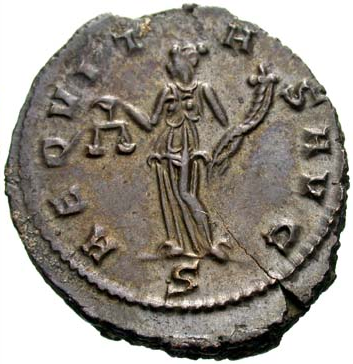
Equality and fairness are what secularism is all about. Everyone should be treated equally by the state regardless of their religion or belief. No one should be advantaged or disadvantaged because of their beliefs, or the beliefs of their parents.
The Romans personified the concept of fairness through the goddess Aequitas. She is depicted holding scales in one hand, representing equal measures, and a cornucopia in the other, representing prosperity. It symbolises that equality and wealth go hand in hand: a fair society is a prosperous one.
Dike, Goddess of Justice
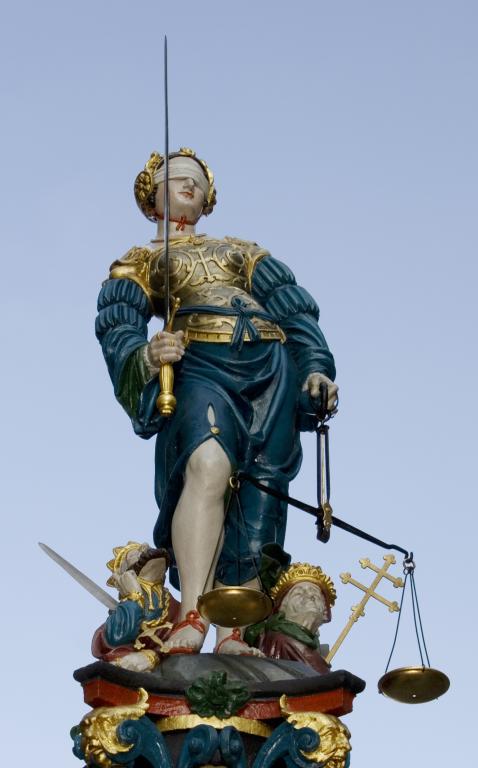
An important concept in secularism is the idea of one law for all. No-one should have special treatment or exemptions from the law because of their religion or belief, and no-one should be disadvantaged in legal matters because of their religion or belief. Additionally, laws should be made and enforced through democratic means, rather than religious codes. Finally, all citizens of the state should be subject to the same laws; we should not have parallel legal systems, based on religious codes or otherwise, that undermine the laws of the land.
Justice is represented through the Greek goddess Dike, known by the Romans as Iustitia. Importantly for secularists, she represents human justice, as opposed to her mother Themis who represents divine justice. She wears a laurel wreath to represent honour and victory, and like Aequitas she carries scales to symbolise fairness. The scales also hearken back to the weighting of the heart in ancient Egyptian religion. The Egyptians believes that in the afterlife, a person’s heart would be weighed with the feather of truth. If the heart was heavy with insincerity and wrongdoings, the soul of the deceased would devoured by the demon Ammit.
Like the goddesses of Liberty, the symbolism of Dike and Iustitia was so powerful that she her image is still used today throughout the world as a symbol of justice and the law. Usually known as Lady Justice, additional symbols have been added to her depiction over the years. Together with her scales, she often carries a sword representing authority and “swift and final” justice. She is also depicted blindfolded, symbolising impartiality and the ideal that justice should be applied without regard to wealth, power, or other status – including religious belief.
Harmonia, Goddesse of Harmony
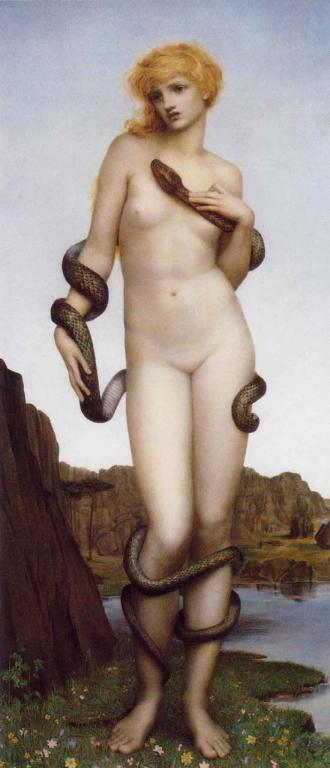
Secularism is about social cohesion. It’s about creating a society where a huge variety of people from all backgrounds, races and religious and philosophical belief can live together in harmony.
The Greek goddess of harmony and civic unity is Harmonia. Some accounts say she is the daughter of Ares and Aphrodite – the personifications of male and female, war and love.
Her Roman equivalent is Concordia, who also represents marital harmony and musical harmony. She is sometimes depicted with the cornucopia of plenty, or the caduceus wand of peace.
Eirene, Goddess of Peace
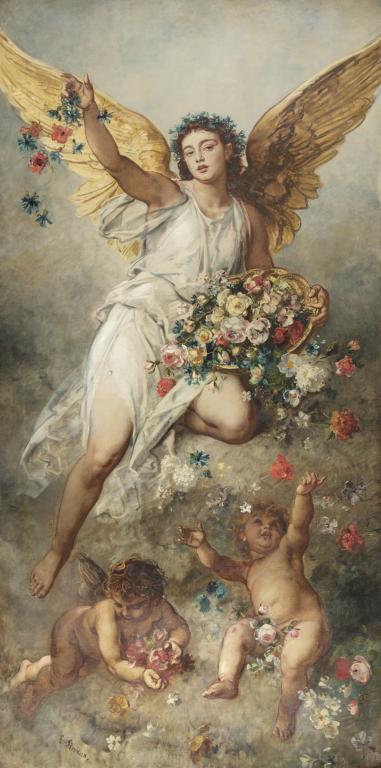
Secularism is about fostering and keeping peace. All too often, conflicts arise as a result of religious tribalism, or in the name of theocratic conquest. But a secular society that gives no advantage or disadvantage to religious groups is one that can more easily quench the flames of faith-based conflict.
The ancient Greek personification of peace is Eirene, the daughter of Zeus and Themis (goddess of divine justice). Her Roman counterpart is Pax. She too is often depicted with the cornucopia of prosperity, as well as olive branches which are still associated with peace today.
Thalia, Goddess of Comedy
It might be strange to conclude this list of lofty ideals with comedy, but this too is a vital component of secularism and human rights. The right to free expression, to laugh, and to mock ideas and authorities – including religious ideas and authorities – is at the foundation of secularism. That’s why I thought it was so important to include Thalia, the goddess of comedy, as the final goddess in this list.
The muse of poetry as well as comedy, Thalia is usually depicted with a much more joyous, mischevious and exuberant air than the other, more austere goddesses in this list. She is often portrayed crowned with ivy – a symbol of Bacchus, also associated with free expression – and holding a comic mask in her hand. Thalia is the daughter of Zeus and Mnemosyne, goddess of memory. Her mother also relates to another important component of freedom – the freedom to remember truths, undistorted by propaganda.

